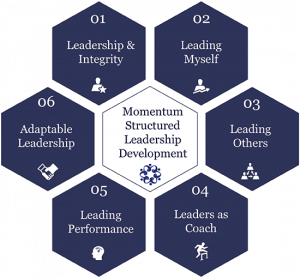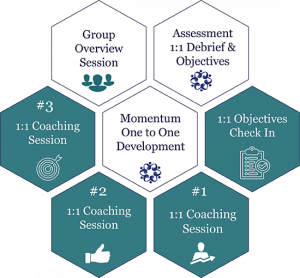Making Virtual Learning Work
Online on-demand has many benefits and is a great methodology, but it lacks the human experience that participants crave. Helen Hartley of Human Resources by Design (HRbD) knows how to design learning. She has been doing it for many years, in different settings, industries, across cultures and with diverse groups of people. She thought there had to be a better way than just doing online on-demand.
We have a unique way of wrapping Momentum, so participants are in a live group setting and have continued access to their sessions, no matter where they are geographically located.
We successfully adopted curriculum design and adapted traditional learning principles to the virtual world. Our methodology makes our approach to developing leaders unique, content-rich and personable.
Momentum is a leadership development program designed for leaders at any level that inspires and motivates participants to develop a deeper understanding of people skills. As a consequence, their capacity to lead significantly increases. All too often, new and even seasoned leaders may struggle with people skills. It is not surprising because it was probably never taught! Appointing someone to a leadership role does not bestow these skills, yet they can be learned. After all, deciding to be a leader is a career change, not just a promotion!
Momentum Structured Component
Momentum Coaching Component
What Participants Say
- “The sessions helped change perspectives and gave me confidence to handle new situations.”
- “MBTI and Emotional Intelligence provided real insights into my strengths and blind spots.”
- “I enjoyed the breakout activities; the real-life scenarios were relevant and collaborative.”
- “Helen adapts to people’s learning styles and creates space for true learning.”
In Summary
Momentum 2.0 is a reformulated program designed to deliver immediate impact for leaders worldwide, while also offering organisations the option of internal facilitator development. It’s leadership learning with the flexibility to suit your organisation’s strategy.
For more information, please reach out to Helen Hartley via our contact page.




